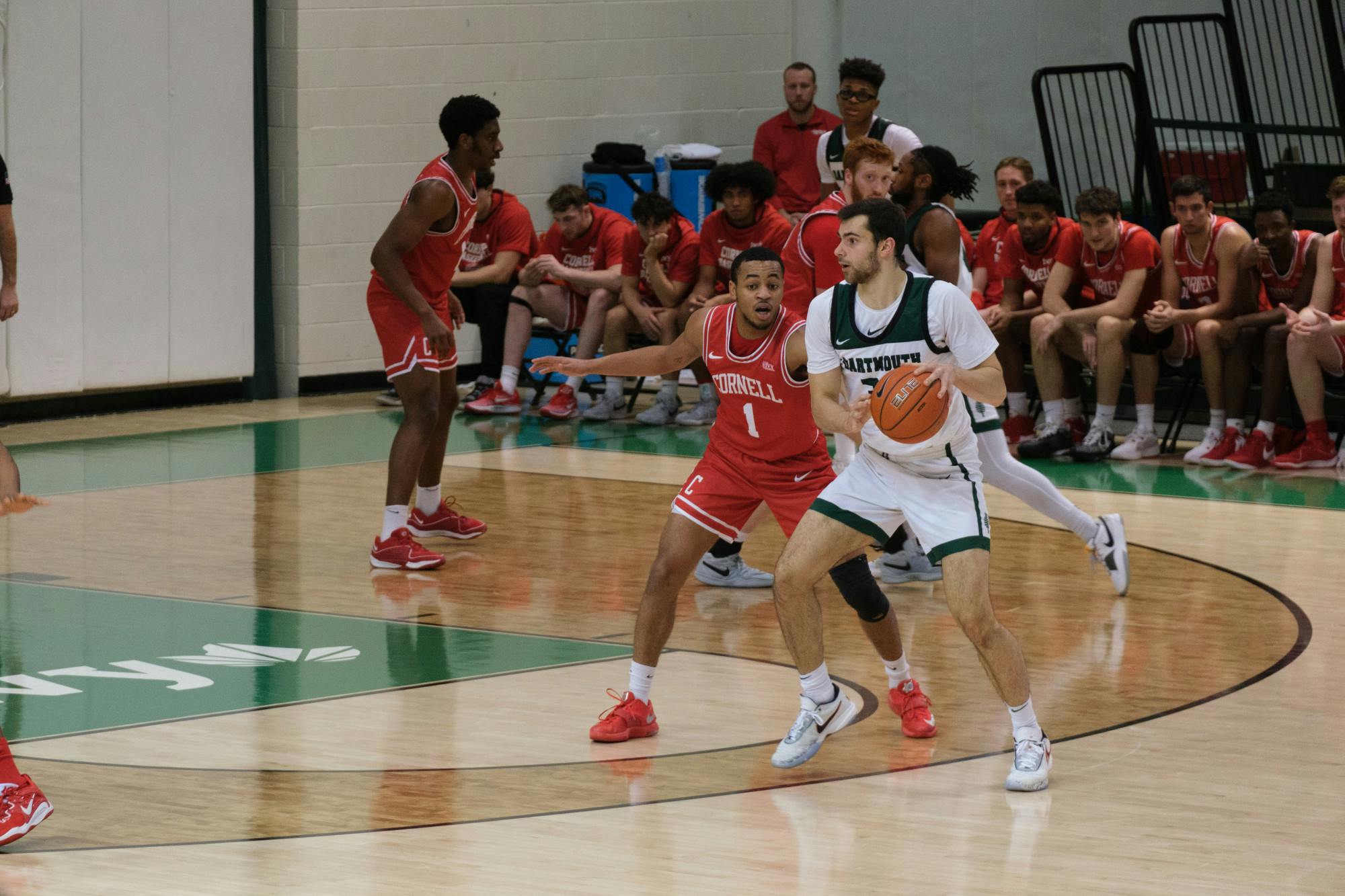On Tuesday, the Dartmouth men’s basketball team — which was represented by the Service Employees International Union, Local 560 — withdrew its petition to unionize. On March 5, 2024, players on the men’s basketball team voted 13-2 to join the SEIU Local 560, becoming the first successful student-athlete unionization in the nation.
In a statement, SEIU Local 560 President Chris Peck said the team’s request to withdraw its petition — which was approved by the National Labor Relations Board the same day — reflects concerns with the incoming presidential administration. Among those is that President-elect Donald Trump will fill vacancies on the NLRB with Republican appointees who may be less favorable to the team’s position.
According to University of New Hampshire Franklin Pierce School of Law professor Michael McCann, NLRB regional director Laura Sacks’s ruling on Feb. 5, 2024, that the players are university employees remains the established precedent despite the players’ petition for unionization being withdrawn. However, while the ruling may be cited in court pleadings, its effect is now diminished, he explained.
“It no longer has the force of law because the bargaining unit that was at issue — the Dartmouth men’s basketball team — is no longer seeking to be a unit,” McCann said.
Peck explained that because the team has withdrawn their petition for unionization, this precedent cannot be overturned altogether by Trump appointees to the NLRB.
“By filing a request to withdraw our petition today, we seek to preserve the precedent set by this exceptional group of young people on the men’s varsity basketball team,” Peck continued. “They … made history by being classified as employees, winning their union election 13-2 and becoming the first certified bargaining unit of college athletes in the country.”
During the previous Trump administration, then-NLRB general counsel Peter Robb rescinded a memorandum written by his predecessor that argued Division I college athletes are employees under the National Labor Relations Act, McCann said. While the issue of student-athlete unionization “doesn’t cut across partisan lines as neatly as do other topics,” precedent suggests that Trump’s appointee for general counsel “will likely be less enthusiastic about college athletes as employees than [current general counsel] Jennifer Abruzzo,” he explained.
Further, the Senate failed to reconfirm Lauren McFerran on Dec. 11, 2024, who was nominated by President Joe Biden and had been serving as the chairman of the NLRB since January 2021. As a result, Trump will appoint two board members — rather than the usual one — to the five-person Board this year, which will lead to a Republican majority.
“The risks of [a Republican-majority board] and a related point [for the union] would be the difficulty of challenging a decision by the NLRB to decline to recognize a bargaining unit,” McCann said.
In an email statement to The Dartmouth, College spokesperson Jana Barnello wrote that Dartmouth “supports our student-athletes’ decision to withdraw their petition to unionize.”
“Dartmouth has built productive relationships with the unions that are part of our campus community and have deep respect for our 1,500 union colleagues,” Barnello added. “In this isolated instance, however, we did not believe unionization was appropriate.”
In their initial petition to pursue unionization, which was filed in September of 2023, the men’s basketball team argued that their restricted schedules and working conditions qualified them as employees of the College.
The men’s basketball team’s efforts to unionize over the past two years have been met with resistance. In March last year, the College declined a request to bargain with the union in an attempt to raise the issue to federal court. Barnello wrote at the time that the College believed the members of the men’s basketball team were “students whose educational program includes athletics” rather than “employees.” In April, The Ivy League filed an amicus brief to the NLRB siding against unionization in the league.
Though the group’s “strategy is shifting,” Peck said they will “continue to advocate for just compensation, adequate health coverage and safe working conditions.”
“The NCAA and Dartmouth still face an uphill battle for a special antitrust exemption from Congress, leaving collective bargaining as the only viable pathway to address issues like the transfer portal, eligibility rules and [Name, Image and Likeness] payments,” he added.
Looking forward, Peck said the SEIU Local 560 will continue to support an Ivy League Players Association and the group licensing program in an ongoing quest to “preserve and expand the rights of college athletes.”




